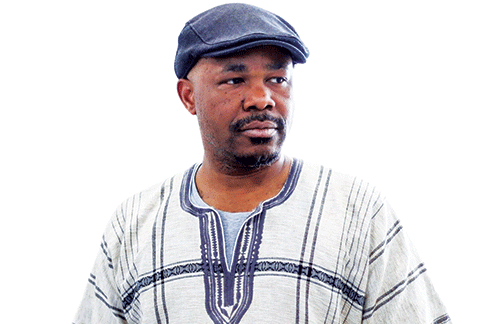Uchendu Eugene Chigbu
Network and networking are not the same. One is a group of people (network), and the other refers to those groups of people in action to achieve a purpose (networking).
A professional network consists of two or more individuals linked through a particular interest in which they learn, share resources, and exchange knowledge through cross-communication. Professional networking involves learning interactions between people of the same or related profession.
Learning entails exchanging information (including experience and ideas) as part of informal or formal social behaviour.
Land networks
A land network is any network that has land as its vital subject matter. Land networks emerge because of common goals people aspire to achieve in the land sector. This can occur at local, national, sub-continental, continental, and global levels. Such goals may include equitable land access, tenure security, safe housing, and environmental protection, to mention a few.
This requires land professionals from different academic disciplines, professional practices, and diverse cultures and geographies to form a community and work together.
Land networks provide a meeting point (ideologically, virtually, and physically) to connect and work towards their common goal. Professional land networks can occur under various arrangements, including formally structured agreements between parties and informal social networks of members.
One key motivator of land networking and collaborations in recent times is the perceived benefits of collaborative activities due to the increasing need for innovation and quality output. Social capital can be built through these networks through opportunities to tap from and share resources held by other actors.
Land networks in Africa
Networks are essential in Africa to fulfil the continent’s demand for knowledge building on good practices and operational arrangements to support its sustainable land policy and development agendas.
This entails aspiring to improve land governance challenges through direct associations between individuals and organisations. There are various professional land networks in Africa. Some are open-ended (accessible to anyone), and others are close-ended (restricted to only people or organisations with defined criteria).
Some networks currently active in Africa are the Network of Excellence on Land Governance in Africa (NELGA), Eastern African Land Administration Network (EALAN), Youth Initiative for Land in Africa (YILAA), African Model Forest Network, Network for Industrially Contaminated Land in Africa, African Mining Network, and Association of African Planning Schools, to mention a few.
Three of these networks (YILAA, NELGA and EALAN) are the most centrally active on land governance in the continent.
YILAA is a continental open-ended network that promotes and protects the land rights of young Africans. YILAA has its headquarters in the Benin Republic. It organises a biennial Pan-African Youth Land Governance Conference. This conference enables African youths to gather and share knowledge on their land experiences from various countries.
EALAN is a regional (East-African) network. It is a platform for academic knowledge exchange between universities involved in land administration education.
It has been in existence for more than 14 years now. It has made significant achievements, including establishing and administering the Journal of Land Administration in East Africa and harmonising Bachelor, Master, and Doctoral programmes across the East African region. NELGA is a continental network. It is the most diverse land network in Africa. It promotes training and research on land policy knowledge and implementation and fosters cooperation between African policymakers and organisations on land-related issues.
It is an African Union (AU) endorsed network. It is hosted by AU’s African Land Policy Centre in Addis Ababa and supported by the German government through its development cooperation (GIZ).
Apart from YILAA, EALAN and NELGA, some global land networks influence land governance and the land profession in Africa. This includes the Global Land Tool Network (GLTN) hosted at the UN-Habitat headquarters in Kenya. GLTN has produced land tools that are being implemented in more than 10 African countries.
Network power
Network power is the collective ability of connected individuals or organisations to cause positive changes in their careers and communities. This power can be felt when network members focus on a common task by bringing their various energies and expertise to develop shared meanings and ethical rules to increase the probability of solving their agreed problems.
The power increases as participants identify and build on their interdependencies in co-creating innovations tailored to resolving a land problem. Network power can manifest in two ways. One is the power of ideas, and the other is the power of action. The power of ideas can manifest in developing land initiatives or tools (in the form of concrete material inventions or published guidelines) that can be implemented to create societal change.
Making that change happen can also be a matter of collective action. All land professionals (individuals and organisations) in Africa should aspire to join these networks to join hands in improving land challenges in Africa.
*Uchendu Eugene Chigbu is an Associate Professor (Land Administration) at the Namibia University of Science and Technology (NUST) and is the Coordinator of the Network of Excellence on Land Governance in Africa (NELGA). The views expressed in this article are entirely his, and not those of NUST and NELGA.


